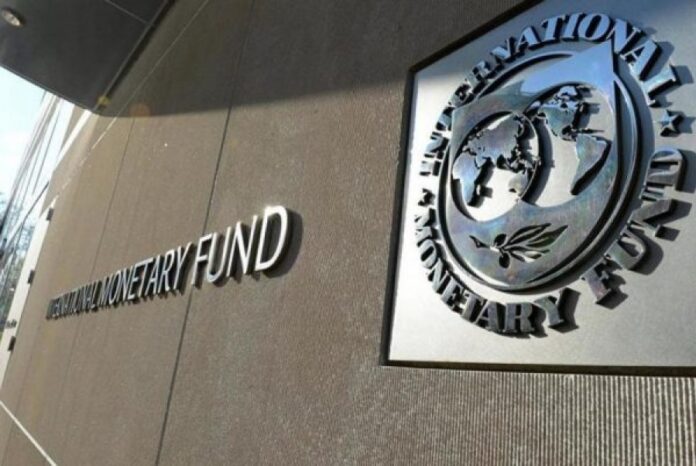The International Monetary Fund on Tuesday trimmed its 2023 global growth outlook slightly as higher interest rates cool activity but warned that a severe flare-up of financial system turmoil could slash output to near recessionary levels, according to Reuters.
The IMF said in its latest World Economic Outlook report that banking system contagion risks were contained by strong policy actions after the failures of two U.S. regional banks and the forced merger of Credit Suisse. But the turmoil added another layer of uncertainty on top of high inflation and spillovers from Russia’s war in Ukraine.
“With the recent increase in financial market volatility, the fog around the world economic outlook has thickened,” the IMF said as it and the World Bank launch spring meetings this week in Washington.
“Uncertainty is high and the balance of risks has shifted firmly to the downside so long as the financial sector remains unsettled,” the Fund added.
The IMF is now forecasting global real GDP growth at 2.8% for 2023 and 3.0% for 2024, marking a sharp slowdown from 3.4% growth in 2022 due to tighter monetary policy.
Both the 2023 and 2024 forecasts were marked down by 0.1 percentage point from estimates issued in January, partly due to weaker performances in some larger economies as well as expectations of further monetary tightening to battle persistent inflation.
The IMF’s U.S. outlook improved slightly, with growth in 2023 forecast at 1.6% versus 1.4% forecast in January as labor markets remain strong. But the Fund cut forecasts for some major economies including Germany, now forecast to contract 0.1% in 2023 and Japan, now forecast to grow 1.3% this year instead of 1.8% forecast in January.
The IMF raised its 2023 core inflation forecast to 5.1%, from a 4.5% prediction in January, saying it had yet to peak in many countries despite lower energy and food prices.
“Our advice is for monetary policy to remain focused on bringing down inflation,” IMF chief economist Pierre-Olivier Gourinchas told reporters.
In a Reuters interview, Gourinchas said central banks should not halt their fight against inflation because of financial stability risks, which look “very much contained.”
While a major banking crisis was not in the IMF’s baseline, Gourinchas said a significant worsening of financial conditions “could result in a sharper and more elevated downturn.”
The report included two analyses showing financial turmoil causing moderate and severe impacts on global growth.
This “moderate tightening” of financial conditions could slice 0.3 percentage point off of global growth for 2023, cutting it to 2.5%.
Emerging market economies would be hit hard by lower demand for exports, currency depreciation and a flare-up of inflation.
This scenario could slash 2023 growth by as much as 1.8 percentage points, reducing it to 1.0% – a level that implies near-zero GDP growth per capita. The negative impact could be about one-quarter of the recessionary impact of the 2008-2009 financial crisis.
Other downside risks highlighted by the IMF include persistently high inflation that requires more aggressive central bank rate hikes, escalation of Russia’s war in Ukraine, and setbacks in China’s recovery from COVID-19, including worsened difficulties in its real estate sector.


